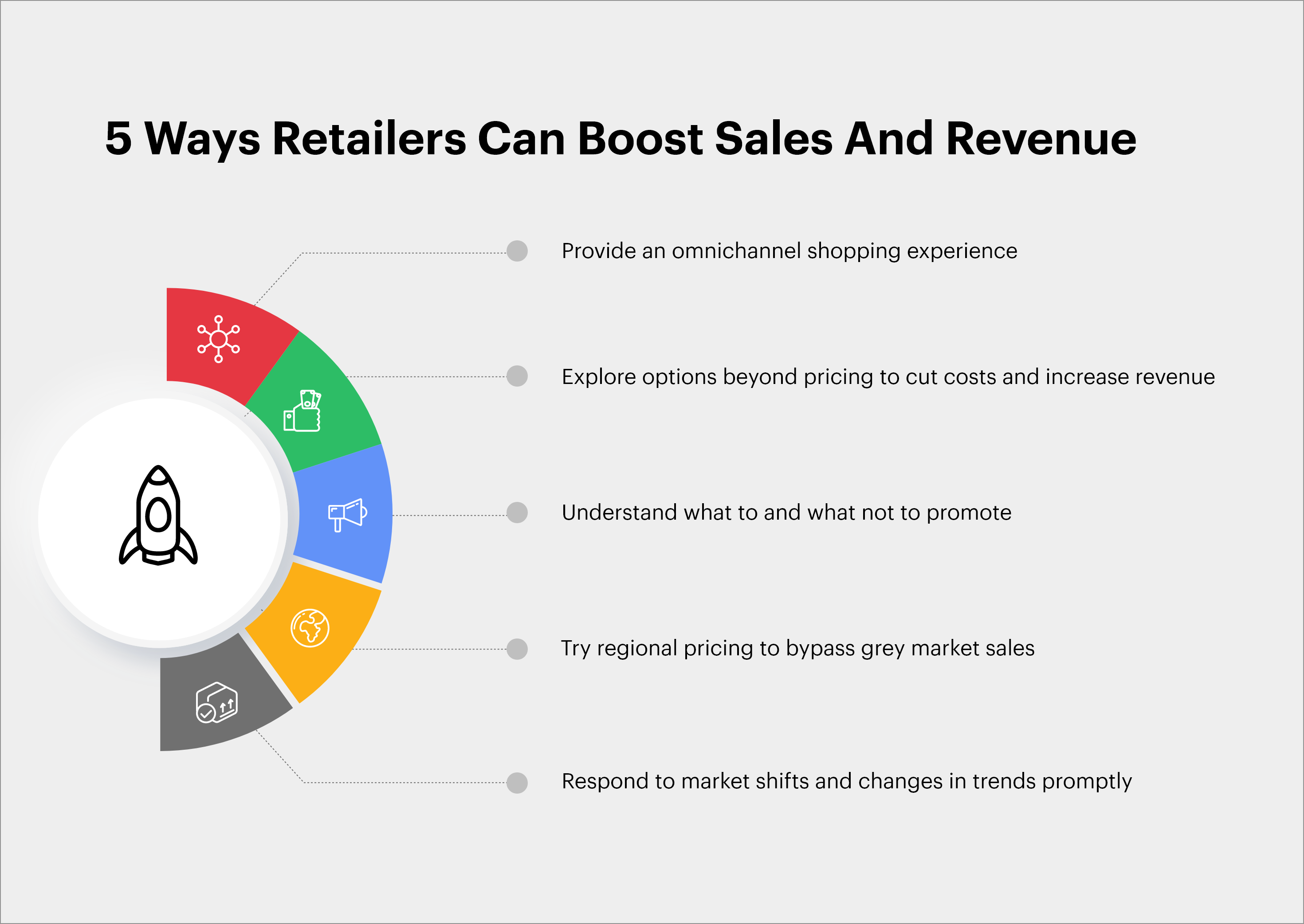The pandemic, production slowdown in China, and war in Ukraine are only the more apparent reasons for the inflation and what’s worrisome is that the light at the end of the tunnel is still quite bleak and far away. What does this mean for the retail sector?
Summary
• Studies suggest that consumers are very aware of price increases due to inflation and are prepared to adjust their shopping habits if prices continue to rise.
• Businesses must take measures to encourage customers to keep purchasing their products.
• Retailers must look for ways to avoid transferring costs onto customers by exploring ways beyond pricing to manage costs.
• Exploring additional ways to encourage purchase including omnichannel shopping and regional pricing will help boost retail sales and revenue.
|
The current economic situation
Global inflation is at an all-time high. While the inflation rate is marginally lower in developed countries than in developing markets, the cost of basics like food and fuel is rising. According to surveys, over 90% of customers have noticed the rising prices causing them to think twice before purchasing anything that is not an absolute necessity.
What it means for retailers
Rising prices will unmistakably lead to a reduction in purchasing power of the customers and retailers have forecasted a decline in revenue over 2023. According to surveys, 80% of customers have said that they are likely to adjust their shopping habits if the inflation continues. Customers are willing to switch brands or retailers for better prices.
This does not mean that you have to compromise on your margins to boost sales and revenue. However, it may not be wise to push the entire rise in cost on your customers. Retailers must chalk out clear and well-thought-out strategies and make data-driven decisions to retain existing customers and acquire new ones.
5 ways retailers can boost sales and revenue

Provide an omnichannel retail experience: While only 24% of all retail sales happen online, over 60% of shopping begins online. Furthermore, research suggests that 73% of customers use multiple channels to shop. This means investing in other channels of sales besides your primary channel is a surefire way to acquire new customers while also presenting a new experience to your existing customers.
Tip: You can still drive most of your customers to purchase via your primary channel of sales through promotions.
Explore ways beyond pricing to manage costs and increase revenue: While increasing the price of your product might be the first thing that comes to your mind when you are looking to manage increasing costs, we urge you to look a little deeper for options beyond that. As a retailer, you might not have a lot of control over production costs but you can look at ways to reduce the cost of storage, packaging, shipping, etc.
For instance, there are customers who would pay to get their products shipped faster. If your customers fall under this category, then explore a faster shipping option to entice your customers into purchasing. In contrast, if your customers fall in the 60% who expect free shipping from the retailer, then offering them a threshold that will encourage them to shop more to avail of free delivery could be a way to boost sales.
Understand what to and what not to promote: Monitor your competitors and your customer behaviour constantly to understand which of your products are price sensitive and which are not. Focus your price promotions on specific products that you know are in demand and price-sensitive. If your products are seasonal or your customers are value-based shoppers, then promotions will have little effect on their purchase decision.
Another way to boost sales is by bundling a price-sensitive product with a non-price-sensitive product to encourage purchase. You must leverage technology to fetch accurate and prompt data regarding competitor prices and stock status so you are able to capitalise on them quickly.
Try geographical pricing to bypass grey market sales: If you are a retailer with a global presence and you are looking to maximise revenue in various regions, then regional or geographical pricing will help you get there. Moreover, your competitors may not be the same in every region. For example, Trader Joe’s is the major competitor for Amazon in the US but their competitor in Germany is Media Markt and Lidl and in the UK it’s Asos and Argos!
Tip: It’s crucial to identify your competitors for each market and monitor them respectively to make the best of a regional pricing strategy.
Respond to market shifts and changes in trends promptly: The retail sector is an aggressively competitive environment. It is therefore crucial to monitor your competitors’ prices and promotions, customer behaviour, and other key metrics constantly and adjust your prices accordingly.
The most efficient way to do this would be to leverage technology that gives you accurate data and a team of people empowered with cross-functional data and decision-making who are constantly analysing data for patterns and trends.
Final thoughts
Since it’s been established that inflation is here to stay, retailers must take measures to encourage their customers to keep purchasing their products. To do this, retailers, whether online or traditional, must invest in accurate, quick, and cost-effective price intelligence software to be able to take data-driven pricing and promotion decisions.
When done right, data from competitor price and promotion data can give you meaningful and actionable insights that you can leverage to not only sustain but come out the other side of the inflationary period unscathed.






